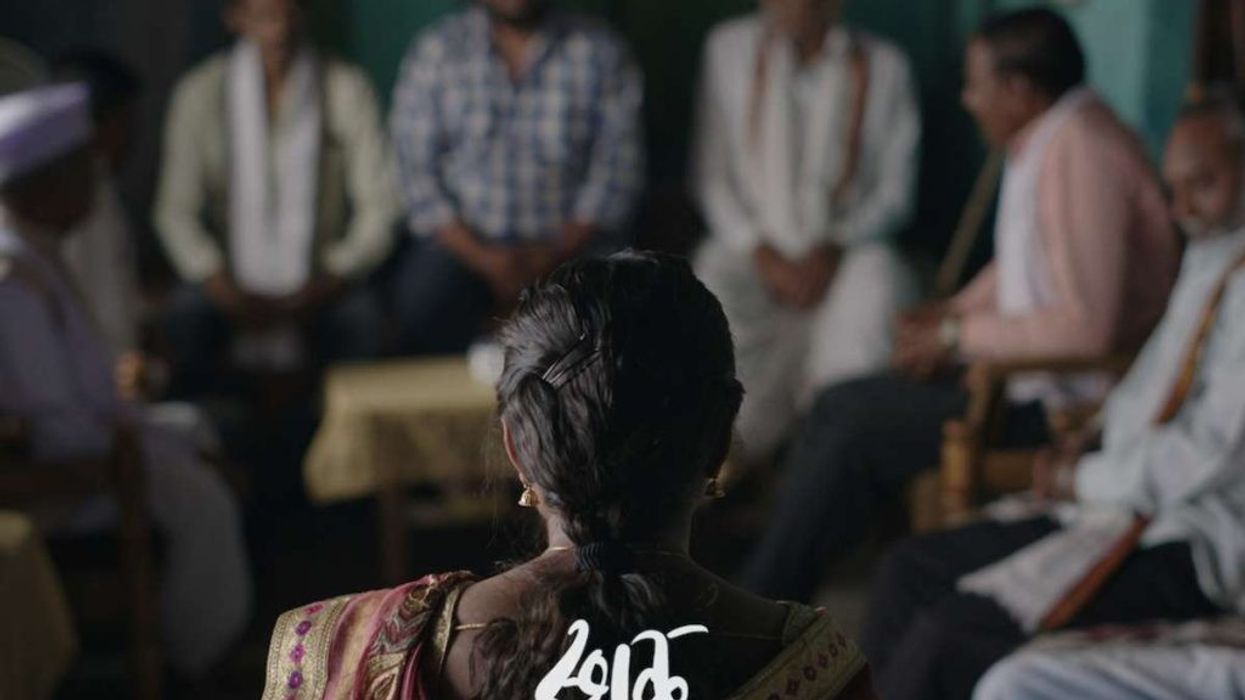The unpleasant reality of how patriarchy functions in rural India, where women continue to be seen as commodities, particularly in an arranged marriage scenario, is the subject of director Jayant Digambar Somalkar’s debut film Sthal, which will have its world premiere at the 48th Toronto International Film Festival (TIFF) on Saturday.
The Marathi language movie, whose title translates to A Match in English, is told from the viewpoint of Savita, a young girl, portrayed by first-time actor Nandini Chikte.
The film is set in the director's hometown of Dongargaon in Maharashtra’s Vidarbha region and explores the custom of arranged weddings.
"It is a simple slice-of-life story about a girl and the men who come to see her. The film is about her journey, and how she goes through these things. We have touched upon small nuances like what happens during such meetings. But the main thing is about patriarchy.
"Like how girls in a rural set-up are presented as a commodity, like a 'wastu' (thing). People are like whether her nose is okay or not. Is she tall or fat, fair or dark, they just judge her? I’m trying to comment on these things,” Somalkar, who has previously co-directed a web series Guilty Minds, told PTI in a virtual interview.
Sthal is the only Indian film to be selected in TIFF's Discovery Programme, which showcases the first and second features of emerging filmmakers from around the world.
Even though the movie is set in a small-town India, the writer-director is confident that patriarchy as a central issue will connect with audiences across the globe.
"It is a local story but the theme of patriarchy is prevalent in villages, cities, and even outside of India. It is about how we treat girls, quite often the parents tell girls what they are supposed to do, and that they can’t do this or that, we don’t pay attention to the aspirations of a girl.
"I think patriarchy is a universal theme. It is not like in developed nations such as the US, and the UK, everything has changed, and patriarchy is still prevalent. It (film) will connect across the world." The inspiration for the film came from Somalkar's personal experiences when, in 2014, he went to a 'Kande Poha Karyakram', a metaphor for a formal meeting between a boy and a girl for marriage. The name comes from Kanda Poha, a tangy, spicy, and sweet Maharashtrian snack.
Somalkar said the meeting triggered something in him and inspired him to write the script.
"I’ve seen this match-making process since my childhood, my two sisters too had a similar process. But back then I didn’t realise anything. When I went with my cousin for it, I saw a girl sitting in the centre surrounded by men, who asked several questions.
"I wondered what would go on in the mind of the girl. So, that was the trigger point for me to make a film. I started writing it immediately," he said, adding he completed about four years ago.
After co-directing Shriya Pilgaonkar's courtroom drama series "Guilty Minds" in 2022, Somalkar was eager to work on a realistic feature film.
"I’m a Maharashtrian, so I know the culture very well. I want to make realistic and true stories. I had not thought that I'd debut with this film but it just happened. Before that, I had written a few scripts and I was trying to make it but ‘Sthal’ happened organically,” he said.
Somalkar said it was a conscious decision to cast local people from the village to give an “authentic” vibe to the story.
"They are all real people. Like, a farmer is a farmer, the housewife is a housewife, the protagonist Savita, is studying in the same college as it is shown in the film. In filmmaking, you’ve to tell an actor to get into the skin of a character. Here, I didn’t have to, I just told them to be themselves." Somalkar recently watched “Sthal” during a preview show and he said the movie made him feel “emotional” and “nostalgic”.
"There is a personal connection because we have shot the film in the same village and house, where I was born, and we have the same people of that village. There’s a feeling of nostalgia. It all felt emotional as there were a lot of memories attached. It is a very personal film." The director is excited about the film's premiere at TIFF and believes it is a significant moment for Marathi cinema.
“It is a big thing for regional movies to be selected for an international film festival. Marathi films have made a name for themselves at such festivals. It is a big thing for me, I’m trying to boost the industry further,” he said, citing the example of noted Marathi filmmakers like Nagraj Manjule, Umesh Kulkarni, and Chaitanya Tamhane, who have received acclaim for their movies internationally," Somalkar said.




